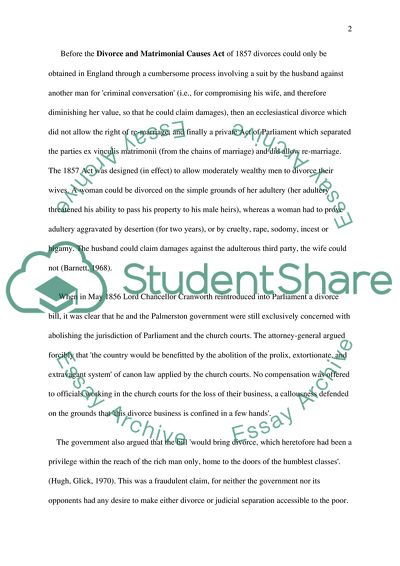Cite this document
(The United Kingdom's Divorce Act of 1857 Case Study, n.d.)
The United Kingdom's Divorce Act of 1857 Case Study. https://studentshare.org/history/1702885-the-united-kingdoms-divorce-act-of-1857
The United Kingdom's Divorce Act of 1857 Case Study. https://studentshare.org/history/1702885-the-united-kingdoms-divorce-act-of-1857
(The United Kingdom'S Divorce Act of 1857 Case Study)
The United Kingdom'S Divorce Act of 1857 Case Study. https://studentshare.org/history/1702885-the-united-kingdoms-divorce-act-of-1857.
The United Kingdom'S Divorce Act of 1857 Case Study. https://studentshare.org/history/1702885-the-united-kingdoms-divorce-act-of-1857.
“The United Kingdom'S Divorce Act of 1857 Case Study”. https://studentshare.org/history/1702885-the-united-kingdoms-divorce-act-of-1857.


